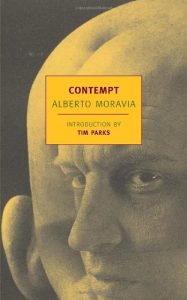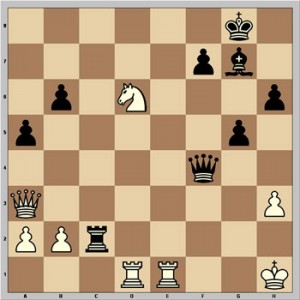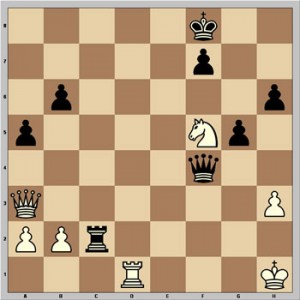Although I’m not a big Science Fiction expert, occasionally I also read books of this genre. My preferences are here mostly with authors from Eastern Europe (Arkady and Boris Strugatsky, Stanislaw Lem, and a few others), but now and then I also discover something new – lately often from the borderline between classical SF and “serious” literature or “speculative” fiction, such as the works of China Miéville or the novel The Future of Mars by Georg Klein, or works by authors who are brand new to me such as Arthur C. Clarke or Philip K. Dick.
If I say Clarke or Dick are new to me, then I have to admit that that’s not exactly true, of course. Every moderately informed moviegoer is familiar with their works in their respective cinematographic version. Especially Dick is particularly popular with filmmakers, just think of Blade Runner, Total Recall, Minority Report, Impostor, Paycheck, or A Scanner Darkly, to name a few examples.
In January 1982, just months before his death, Dick gave a series of tape-recorded interviews that have been transcribed and published in the book What If Our World Is Their Heaven?
Two of the recordings deal with the movie Blade Runner, which is based on Dick’s book Do Androids Dream of Electric Sheep? During filming, Dick was in the final stages of writing a new novel and so did not accept the invitation of director Ridley Scott to attend the shooting. The two interview clips in the book deal with the relationship between the original novel and the film, and with how Dick judged the result (he saw a not yet finalized version in a private performance, the film was not yet in the cinema at the time of his death). In short, Dick was strongly impressed by what he saw and had the highest praise for both the director and the film crew and performers. Although an essential part of the action of the original book was dropped in the film, Dick saw clearly that this was the only way to realize an adequate film adaptation of his material.
I was also interested in Dick’s co-operation with his agent and the sheer volume of inquiries from various merchandise producers he had to deal with – including a comic book version of Blade Runner. Although Dick didn’t live to see the great worldwide success of Blade Runner, he could at least be glad to know that it was a wonderful film adaptation. Until today, Blade Runner is a milestone in film history.
Of interest to me were also Dick’s comments on the creative process of an SF writer. Dick was at times an extremely prolific writer. When he had made up his mind about the concept of a new book, he sat down, and then literally worked day and night, neglecting everything else, including sleep and the intake of food. We can imagine him as an absolute workaholic, who felt completely drained after the completion of a book under such circumstances. The famous writer’s block, if it ever happened to him, was to Dick – contrary to most other authors – a blessing, not a curse. Literary works rarely served as a source of inspiration to him – he read hardly any novels -, but technical, philosophical or religious works – the latter in particular after a “spiritual revival experience” as a result of a serious illness of his son – triggered his literary output.
The transcription of the tape recordings is true to the original and virtually unedited. As a result, there are many redundancies, and every stutter of Dick or the interviewer is printed in the book. A careful editing would have made the text much more readable. In addition, the interviewer unfortunately repeatedly breaks off the conversation when it gets interesting, or interrupts Dick when he is in the process to explain something important. She is also occasionally inattentive and does not listen closely, often asks for things that Dick had said shortly before, and so on. It’s a pity that the interviewer is rather unprofessional and not very focused at times.
In spite of the above-mentioned objections, this is a book that I can recommend to all readers with an interest in one of the major SF authors of the 20th century. Contrary to my expectation, Dick comes over in these conversations as a rather grounded and sometimes self-ironic and warm person without the usual grandstanding attitude of many successful authors.

Gwen Lee and Doris Elaine Sauter (eds.): What If Our World Is Their Heaven? The Final Conversations of Philip K. Dick, The Overlook Press, New York 2000
© Thomas Hübner and Mytwostotinki, 2014-9. Unauthorized use and/or duplication of this material without expressed and written permission from this blog’s author and/or owner is strictly prohibited. Excerpts and links may be used, provided that full and clear credit is given to Thomas Hübner and Mytwostotinki with appropriate and specific direction to the original content.











 Facebook
Facebook RSS
RSS Twitter
Twitter